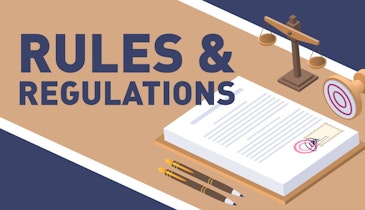Just for fun, try searching the Internet under “mistakes investors make.” You’ll find articles that list 15 mistakes. Or four. Or 18. Or seven. Or 10. And almost every list will include mistakes that others don’t.
Mistakes. We all make them. But judging from all these articles, and all the errors so many of us commit, it’s a wonder anyone makes it to retirement in one financial piece. Of course, most of us don’t make catastrophic blunders, like betting our life savings on a hot tip involving commodities markets. Still, it’s worthwhile now and then to remind ourselves where we can go wrong if we’re not careful.
So, here are some common investment mistakes, pulled from a variety of sources believed to be reliable. In no particular order of importance:
1. Expecting too much.
The Merriman Berkman Next money management firm cautions against demanding perfection in order to be satisfied. “We’ve all known people whose attitude is that nothing is good enough for them,” principal Paul Merriman writes in an article on the firm’s Web site. “People who can’t stand to have anything but ‘the best’ are rarely successful at investing.”
Indeed, as a wise man once said, “The perfect is the enemy of the good.” No matter what investments you own, there will always be something performing better.
If you pay attention to that, you’ll tend to jump constantly from one investment to another — and do worse than if you stuck to a long-term plan.
2. Following fads.
Remember the dot-com boom and bust in 2000? That wasn’t the first fad, and it won’t be the last. Fad-following is a key reason many people get the traditional “buy low, sell high” advice exactly backwards, according to Cathy Tuckwell, a Certified Financial Advisor in Toronto, Canada.
Fad investors tend to buy the “popular” stocks of the day, which typically become fashionable for brief periods. Many people invest at the height of a trend, just in time to ride it downward, Tuckwell says. She advises looking critically at prospects for an investment’s future performance — not just past performance.
3. Taking too little risk.
Merriman observes that some people are afraid to lose any money at all. They want everything secure and guaranteed — but that isn’t possible. “Very low risk almost always equates with low return,” Merriman says. “If you put your emergency money in a bank account and earn one percent, you may think you’re taking no risk. But in fact you are taking the very real risk that inflation will rob your money of its purchasing power.” It’s the same with money we invest for retirement.
4. Holding on to a loser.
When an investment heads seriously south, it can be hard to admit having made a mistake and sell. The tendency is to try and hold on until the investment comes back at least to the price we paid.
“Not every investment decision you make will pay off,” says Dan Kiley, chairman and chief compliance officer with Retirement Corporation of America. “When you do make a mistake, acknowledge the error, sell the shares and invest in something more promising. The longer you stay anchored, the more money you will have tied up in assets that may never return what you originally paid for them.”
5. Taking advice from talking heads on TV.
“These programs should come with a big disclaimer: For Entertainment Purposes Only — because that is just what they are,” says John Nyaradi, president of Ridgeline Media Group LLC and owner of Wall Street Sector Selector. “They’re fun to watch and provide fast moving commentary, but if you’re investing according to what you hear on television, you are doomed to failure.”
The “hot tips” you hear on these programs are already common knowledge in investment circles. Whatever good news the commentator is peddling, you can bet it’s already factored into the investment’s price. That means you won’t get a bargain.
6. Having a big head.
“The majority of people (though men are more guilty of this than women) think they are better than average at a variety of tasks, such as driving and investing,” says Roger Ibbotson, Ph.D., chairman of Ibbotson Associates, a financial diversification company in Chicago. “But by definition, a majority of people can’t be above average. This unrealistic assessment of one’s own investing prowess causes investors to overtrade and pay the resulting higher fees and taxes.”
7. Putting too much faith in brokers.
Investment sage Warren Buffett has asked rhetorically why people drive Rolls Royces into the city to get financial advice from people who rode in on the subway. Brokers may know more about investing than the average person, but if they really knew which stocks and funds were the best, they would have long since retired. It’s wise to do research as a check against what a broker recommends.
8. Taking advice from amateurs.
If we have a toothache, we go to a dentist. Yet many of us, when dealing with our financial health, put trust in “hot tips” or hearsay from friends, family members, or co-workers who have no real training or credibility. “The lure of the hot tip is all but irresistible to some investors eager to find a shortcut to wealth,” Merriman says. “Unfortunately, many investors have to learn the hard way that there are no reliable shortcuts.”
9. Trying to time the market.
It’s tempting when the market gets rough to try and pull out at a high point, then try to get back in on the next upswing. Unfortunately, not even professionals can do that. No one can predict at any given time where markets will go. Furthermore, many stock market gains take place in short bursts. Those sitting on the sidelines miss those opportunities.
10. Procrastination.
The specter of mistakes can be intimidating, but perhaps the worst investment mistake is to delay.
“Procrastination takes many forms,” says Merriman. “You don’t start saving for retirement until it’s nearly on top of you. You know you should review your investments, but other things always seem more pressing. You think you’ll catch up later when the market is better, when you’re making more money, when you have more time. And there’s the irony, because the longer you wait, the less time you have. Every day you delay is a day of opportunity that you can never get back.”
Most of us have probably made one or more of these mistakes at one time or another. And there are many more we could make that are not listed here. If we’re going to make mistakes, the goal should be to make little ones instead of big ones and, above all, keep trying to get better.





